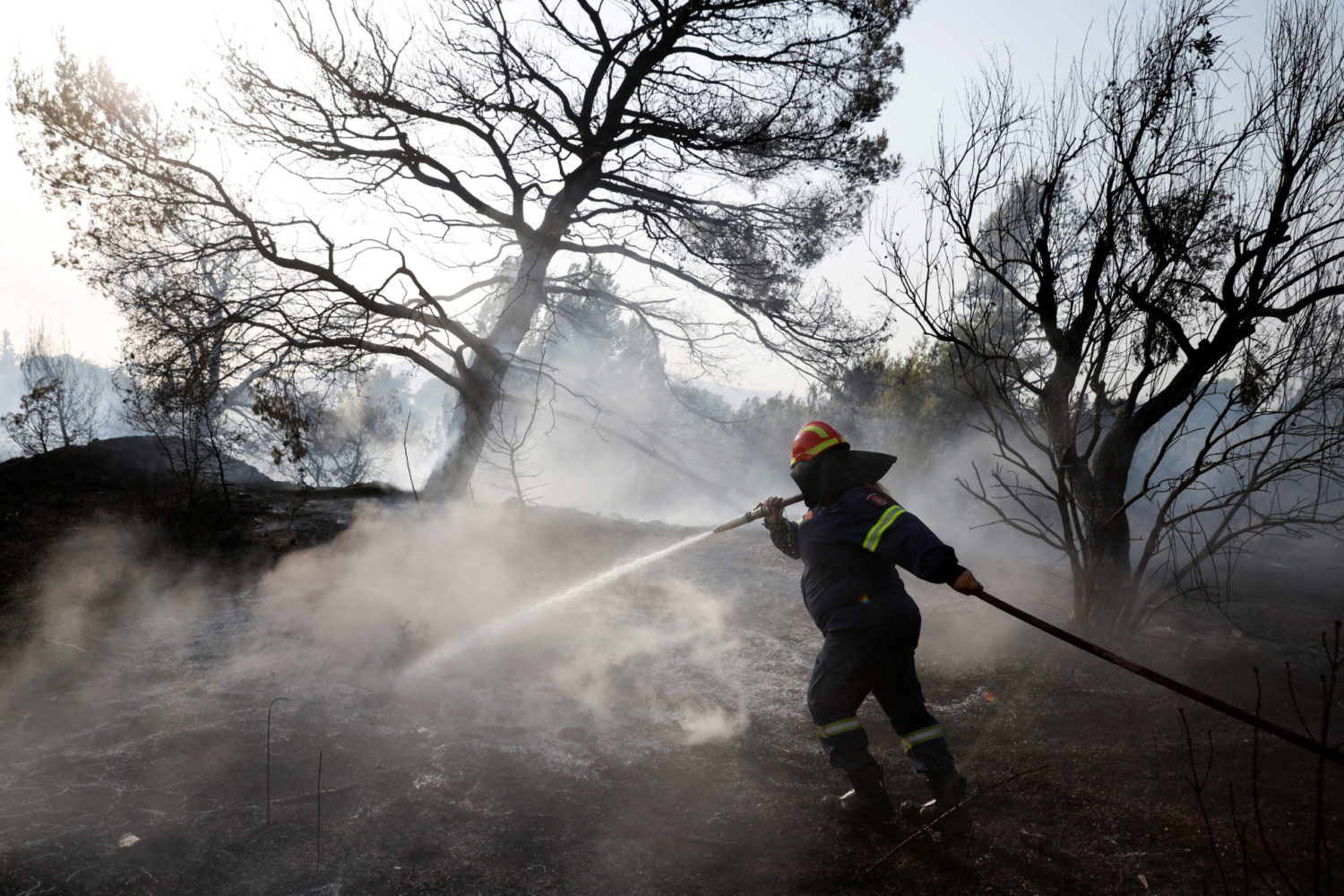
By Angeliki Koutantou and George Georgiopoulos
ATHENS (Reuters) -Greek Prime Minister Kyriakos Mitsotakis replaced his public order and tourism ministers on Tuesday and created a new civil protection post following sharp criticism of the government’s response to a spate of summer wildfires.
More than a quarter of a million hectares of pine forests were destroyed in August by blazes that burned for several days across Greece, with flames reaching the outskirts of Athens. Homes and businesses were destroyed, two people were killed and thousands were forced to evacuate.
Mitsotakis, whose conservative government took office in July 2019, has apologized publicly for delays and breakdowns in the official response to the fires, and promised to rectify mistakes.
On Tuesday, he replaced Public Order Minister Michalis Chrysochoidis with Takis Theodorikakos, a political analyst and former interior minister.
He switched Health Minister Vassilis Kikilias, who last year oversaw Greece’s successful containment of the first wave of COVID-19 infections, to the country’s key tourism post in place of Harry Theoharis.
Mitsotakis’ spokesperson also announced the creation of a civil protection ministry to be headed by Evangelos Apostolakis, a retired admiral and former defense minister.
But Apostolakis, who served as defense minister under a previous Syriza leftist government, did not accept the post on grounds that an interparty consensus regarding his appointment had not been reached.
The prime minister’s office confirmed the rejection by Apostolakis and plans to look for a replacement for the post.
The prime minister set up a natural disaster recovery committee in mid-August in the wildfires’ aftermath.
The reshuffle, in which Finance Minister Christos Staikouras and Foreign Minister Nikos Dendias were retained in their posts, comes less than two weeks before Mitsotakis is due to outline his 2022 economic policy in a keynote speech in Thessaloniki.
Greece’s economy relies strongly on tourism and is seen bouncing back by 3.6% this year as tourist arrivals pick up sharply following a dismal 2020, when coronavirus travel curbs were in force and it slumped 8.2%.
(Reporting by Angeliki Koutantou and George Georgiopoulos; Editing by Edmund Blair, John Stonestreet and Philippa Fletcher)











